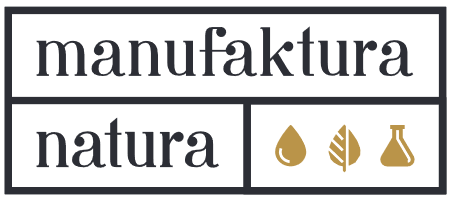Hydrolats, or plant waters. What are they and how to use them?
- today
- label News
- remove_red_eye 7107 views
- comment 0 comments
Hydrolats are conquering the global cosmetic market. Several dozen years ago they were considered a by-product of essential oils production and were sacked as unnecessary. When the valuable properties of floral waters were discovered, they became a permanent fixture in the cosmetics of millions of women and men around the world. Today, they are massively used in the production of cosmetics as a valuable source of natural bioactive substances.
The word "hydrolate" comes from the French language. It is a combination of two words. Hydro' - water, and 'lait' - milk. The name refers to a nourishing extract derived from plant sap.
While until now hydrolats have been considered as by-products in the production of essential oil, recently they have been appreciated more. Sometimes the distillation process is conducted specifically to obtain a hydrolate rather than an oil. This method produces a higher grade of water, much more concentrated, with a higher percentage of precious ingredients. At the same time, it is also more expensive to produce. Hydrolats obtained this way are much less available on the market and are produced by a definite minority of manufacturers.
Today, a significant part of hydrolats is still obtained using a traditional method, i.e. as a residue in the process of production of fragrance oils. During distillation, steam captures essential oil molecules insoluble in water. The mixture is cooled and the oil is separated from water. The resulting water is called hydrolate. Soluble plant molecules and small amounts of the essential oil produced permeate it. This method is mainly used to isolate herbal raw materials in the production of medicines and cosmetics, and just essential oils. Thanks to this, the precious ingredients are not damaged and the flower waters are an extremely rich mixture of plant particles. They contain vitamins, mineral salts, phenols, aldehydes, organic acids, small residues of suspended essential oils, and other plant substances. They are characterized by a delicate fragrance, often consistent with the scent of the plant from which it was obtained, although there are exceptions. There are hydrolats which have a scent completely different from that of the essential oil obtained alongside.
Why do we value hydrolats?
For a pH close to the natural pH of the skin, so we can apply it directly to the face. Versatility, thanks to which various hydrolats can be used by people with practically any skin and hair type, also as an ingredient of their own home cosmetics. For its lack of tendency to cause irritation and tendency to allergies. It has remarkable soothing and calming properties. Depending on which plant it is extracted from, it shows different properties. It can refresh, reduce swelling, soothe irritation, moisturize, tone, nourish and strengthen the skin.
How to choose the right hydrolate?
You should choose a product based on your skin type. Rose hydrolate, extracted from the petals of the damask rose, will be loved by those looking for a true remedy for dry skin, improved elasticity, deep nourishment and hydration. Additionally, rose flower water has anthocyanins and gallic acid in its composition, which are characterized by antioxidant, cleansing and strengthening properties. Orange hydrolate has similar properties. The presence of hesperidin and natural betaine in its composition firms mature skin and adds glow to tired skin. It shows anti-aging effects due to its ability to stimulate elastin and collagen synthesis in the skin. Additionally, it moisturizes and strengthens blood vessels. Raspberry hydrolate with aloe vera - our favorite among soothing products, helping to heal imperfections and irritations. The lavender one, obtained in the process of distillation of the flowers of the narrow-leaved lavender, soothes the skin unearthly, acts anti-inflammatory and helps in wound healing. With regular use, the complexion gets a healthy shine, becomes supple and smooth. Plus, it's a gentle chamomile hydrolate that can even be used on babies' skin without any worries. Rose lotus hydrolate, apart from caring for your skin, will also soothe your nerves and reduce stress. There's plenty to choose from.
For people with dry skin:
- Rose hydrolate
- Orange hydrolate
- Jasmine hydrolate
- Raspberry hydrolate with aloe vera
- Pink Lotus Flower Hydrolate
- Lemon Hydrolate
- For those with sensitive skin:
- Rose hydrolate
- Lavender hydrolate
- Chamomile hydrolate
- Raspberry hydrolate with aloe vera
- Jasmine hydrolyte
For people with vascular skin:
- Orange hydrolate
- Camomile hydrolate
- Lemon Hydrolate
- Raspberry hydrolate with aloe vera
For those with problematic, oily, hyperpigmented and mature skin we recommend:
- Chamomile Hydrolate
- Lavender hydrolate
- Strawberry hydrolate
- Orange hydrolate
- Chamomile hydrolate
- Pink Lotus Flower Hydrolate
- Lemon Balm Hydrolate
How to use hydrolats?
Hydrolate can replace your daily facial toner applied directly to your skin. We recommend spraying it with a bottle of atomizer or cleanser.

Comments (0)